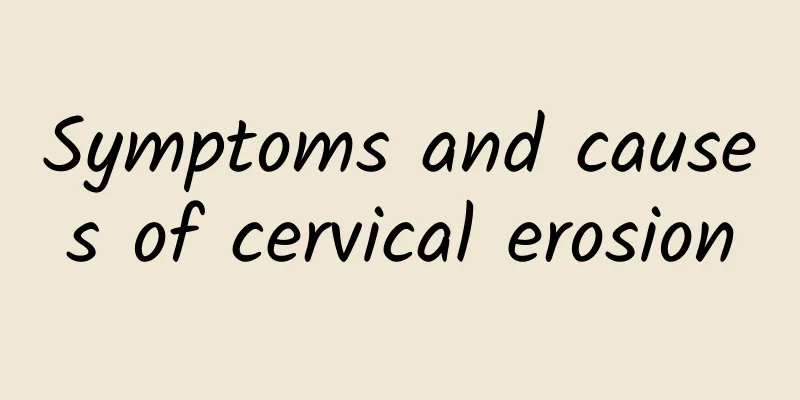What are the causes of miscarriage?

|
Abortion is a common obstetric disease. After a miscarriage, not only will the desired baby be lost, but the body of the pregnant mother will also be greatly harmed. In severe cases, it may even endanger her life. It is necessary for everyone to understand the causes of miscarriage. Everyone should take precautions in life to avoid misfortune caused by negligence. So, what are the causes of miscarriage? 1. Genetic Defects It accounts for about 5% of early miscarriages, 30% of mid- and late-term pregnancy, and 3% of stillbirths. Genetic defects mainly refer to chromosome defects in one or both spouses, which cause abnormal embryos to form when the egg splits or the sperm and egg combine, thus leading to miscarriage. If this happens, it is recommended that both spouses should undergo further chromosome analysis, and the miscarriage embryo should also undergo chromosome analysis. In another case, the chromosome abnormality of the embryo is accidental, that is, it has nothing to do with the parents. 2. Abnormal uterine structure This abnormality is one of the reasons for high miscarriage rates, including congenital double uterus, arcuate uterus, septate uterus or cervical weakness, or acquired cervical weakness, endometrial adhesions, uterine fibroids, adenomyoma, etc. General examination methods include ultrasound, traditional hysterosalpingography or magnetic resonance imaging. 3. Endocrine abnormalities These include thyroid disease, diabetes, polycystic ovary, and excessive prolactin or luteal insufficiency. Clinically, they can be diagnosed by simply taking a blood test for hormones. 4. Inflammation and infection If a woman has a filterable virus, bacteria, protozoa, parasite or fungal infection, she may easily suffer from miscarriage after pregnancy. Therefore, once the infection is confirmed, she must receive drug treatment. 5. Environmental factors The environmental factors referred to here are common smoking, drinking and excessive coffee; as for environmental toxins, they include exposure to heavy metals (such as mercury, silver) and anesthetic gases. Three or more consecutive miscarriages are considered habitual miscarriages. Habitual miscarriages seriously endanger women's health, are one of the main causes of infertility, and affect women's family happiness. However, habitual miscarriages can be easily confused with ordinary miscarriages. Therefore, if similar symptoms occur in daily life, you must go to a regular hospital for examination and treatment in time. |
<<: Professional knowledge on causes of miscarriage
>>: What are the causes of spontaneous abortion?
Recommend
How should women check for cervical erosion? Three methods for rapid diagnosis of cervical erosion in women
Cervical erosion is a gynecological disease that ...
Hanging from the beam and piercing the thigh! "Drip classes" appear in Hubei universities in China
The "joint college entrance examination"...
What if my period comes 10 days early?
If menstruation comes 10 days early, it may be re...
How to treat cervical erosion cyst? Several best treatments for cervical erosion cyst
When women grow up, they will go through a series...
The best hospital for the treatment of functional uterine bleeding
Adolescent women do not know enough about their o...
Do you have toothache before menstruation?
Do you have toothache before your period? Toothac...
What are the symptoms of senile vaginitis?
What are the symptoms of senile vaginitis? Senile...
What are the specific causes of cervical erosion?
Cervical erosion is a common disease, and female ...
A great way to lose weight and slim your waist! 3 steps to transform into a "slimming refrigerator"
A barbecue restaurant was once exposed for storin...
I gained weight during menopause! Drink more soy milk to lose weight quickly?
After women have passed their golden years, they ...
Common symptoms of acute adnexitis
The causes of acute adnexitis are complex and hav...
Criteria for grading cervical erosion based on symptoms
By analyzing the symptoms of cervical erosion, th...
Analysis of the causes of several common vulvar leukoplakia
Vulvar leukoplakia is a gynecological disease wit...
What are the commonly used drugs for chronic cervicitis in women? There are two types of drugs for chronic cervicitis in women: internal and external
Commonly used medicines for chronic cervicitis ar...
Is vulvar leukoplakia vitiligo?
Vulvar leukoplakia, also known as female vulvar l...









